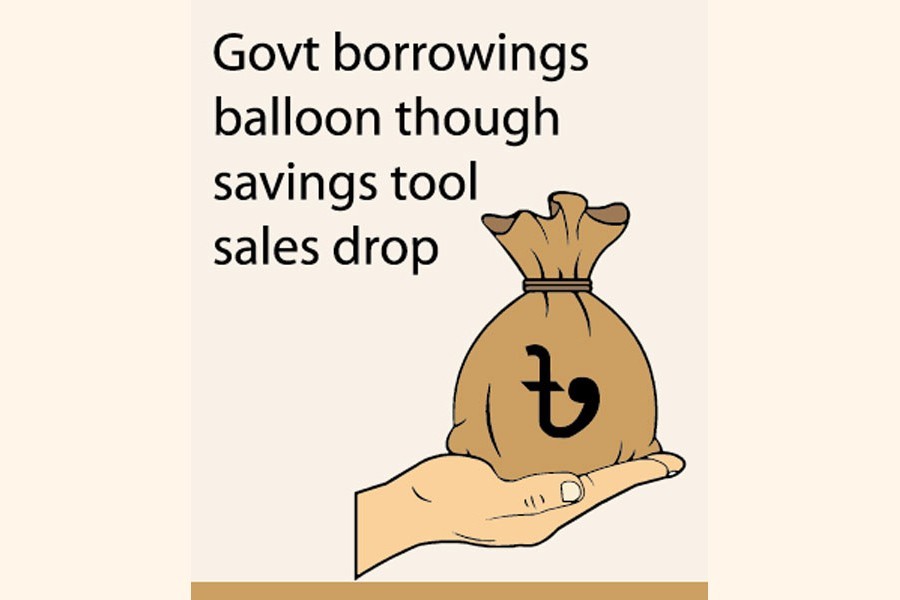The largest share of public finance usually goes for interest payments, as a single head, against government borrowings but the volume has been surging of late.
Meanwhile, statistics show, government borrowings from other sources, including banks, have been on the rise although sales of savings tools dropped.
Economists say such huge interest payments against both domestic and foreign loans squeeze the space for growth-support financing.
The rise in percentage in August of the current fiscal year is nearly 14 per cent over the same period a year earlier.
Education and general public services sectors also hit the top of the list in some months in spending from the budgetary allocations.
The government up to August 2022 had paid 32 per cent of its operating expenditure or Tk 116.86 billion for interest purposes.
The data show that the largest amount of Tk 106.75 billion goes for domestic interest payment while the rest Tk 10.1 billion for foreign interest payments.
It was Tk 99.3 billion during the same period a year earlier, according to the finance division's latest data.
Similarly, the interest payment was Tk 82.26 billion in August 2020, Tk 78.68 billion in the same period in 2019 and Tk 67.16 billion in August in 2018.
Allocations for operating expenditures against different ministries and divisions are also classified under six broad categories: administration, social infrastructure, physical infrastructure, agriculture, interest payment, and others.
People at the finance division told the FE that the rise is actually a "lag effect" of the large volume of the outstanding stock of the National Saving Certificates (NSC). The sales of the national savings certificates, however, dropped in the period.
The NSCs sales decreased by 24 per cent as of August FY23 compared to that of August FY22.
The net sales of NSCs during July-August of FY23 decreased by 93.00 per cent compared to the same period of the previous year. The outstanding stock of NSCs stood at Tk 3.64 trillion at the end of August FY23, which is 4.17-percent higher compared to that of August FY22.
Economists say such huge payment is shrinking the fiscal space for growth support.
They also say NSC sales have dropped but, on the other hand, other borrowings, for example, banking borrowing, are on the rise.
Dr M. Masrur Reaz, chairman of the Policy Exchange of Bangladesh, told The FE that the overall borrowing remained still high although the NSC sales dropped from last year's mark.
"Such huge payment from the revenue sources has an impact on the fiscal side as the government cannot do more activity for the economic growth."
The estimation for interest payment for the whole period of the current fiscal year is Tk 803.75 billion.
jaismharoon@yahoo.com


